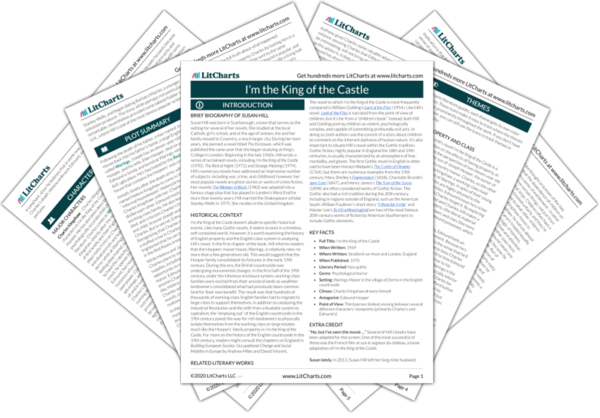For the time being, Charles has enough self-control to prevent himself from screaming. Even though he knows that Edmund placed the crow there to frighten him, he’s still genuinely frightened—his knowledge of
why the crow is there has no impact on his sense of shock. As an aside, it’s worth keeping in mind that Joseph already has a perfectly good housekeeper, Mrs. Boland, which makes it clearer that he has hired Helena to be his girlfriend, not his housekeeper.
